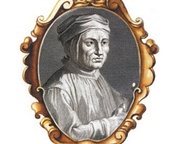Natura plastica

Domenico Gargiulo, detto Micco Spadaro, Atteone Si Trasforma in Cervo, olio su tela, cm 123x175
Dal 28 June 2017 al 24 July 2017
Milano
Luogo: Blindarte Milano
Indirizzo: via Palermo 11
Telefono per informazioni: +39 02 36565440
E-Mail info: info@blindarte.com
Sito ufficiale: http://www.blindarte.com
La Blindarte è lieta di annunciare l’apertura della mostra NATURA PLASTICA mercoledì 28 giugno 2017, dalle ore 19.
L'esposizione resterà aperta tutti i giorni fino al 24 luglio, nello spazio di Via Palermo 11 a Milano, dal lunedì al venerdì dalle ore 11 alle ore 13.30 e dalle 15.30 alle 19.
La mostra, a cura di Memmo Grilli, vuole indagare sulla relazione extratemporale che intercorre tra il pensiero di alcuni filosofi e pensatori che nel ‘600 hanno profondamente cambiato la società e la politica dell’epoca e degli anni successivi, e la ricerca di alcuni artisti (contemporanei e non) che, a distanza di tempo e forse senza averne piena consapevolezza, hanno traslato all’interno delle proprie ricerche elementi che hanno le loro radici nello stesso pensiero.
“L'idea", la soprannaturale verità d'ispirazione neoplatonica, rivive nel '600, grazie alle teorie di Ralph Cudworth (1617-1688) e degli altri esponenti della scuola filosofica di Cambridge, un ruolo centrale nel pensiero illuminato, influenzando tra l'altro, e non è cosa da poco, il parziale superamento delle teorie cartesiane, con importanti ripercussioni anche sulla riduzione delle politiche repressive dell'epoca.
Pur rimanendo ancorato ad un ambito di determinazioni divine, lo spiritualismo per Cudworth si compone di nuovi significati che lasciano intravedere spiragli di libertà e autodeterminazione, con un contestuale ripensamento del “l’immagine stessa di natura, per definirla in termini di vitalità e di plasticità. La natura diventa così una realtà viva, dinamicamente proiettata verso una continua produzione di forme sempre nuove e non più inquadrabile all’interno delle coordinate della meccanica cartesiana. Una tale visione della natura … aprirà la strada al modello di una natura dinamica”(1), di una natura più plastica, plasmabile e che contemporaneamente assume il ruolo di "essere vivente non consapevole”(2).
Da questi pensieri, traslati in ambito artistico, trae spunto il leitmotiv della mostra. L’idea è senza dubbio, fin dai tempi di Duchamp, uno dei principali innescatori del processo creativo e, se in ambito filosofico è permeata da significati religiosi, in ambito artistico lo stesso, frutto della natura propria dell’artista, è invece tutt’altro che soprannaturale. Ciononostante non è difficile scoprire chi le attribuisca un valore quasi sacrale: le idee non muoiono con gli artisti, ma continuano a vivere e ad influenzarne i fruitori, in qualche caso anche per molte generazioni successive. Aumentando nel tempo la propria diffusione, le idee impongono la loro forza spirituale sulla collettività e poco a poco, confrontandosi con le realtà differenti, modificano, plasmano il proprio significato per adattarsi a contesti sempre nuovi e continuare il proprio ruolo guida. In questo modo arricchiscono di una velata inconsapevolezza non solo l’idea originaria, ma a volte anche l’artista stesso rispetto alle future interpretazioni della sua creazione. Anche l’idea di natura plastica di Cudworth va definita in termini di “non consapevolezza” e, sebbene lui la intenda come essere strumentale ad un volere divino, con questi pensieri ha contribuito, insieme agli altri Latitudinari, alla diffusione di un sentimento di tolleranza e libertà in un periodo particolarmente difficile per il rispetto per quelli che poi verranno definiti i diritti fondamentali dell’uomo.
Per Joseph Beuys la natura e l’uomo sono "inscindibili e interdipendenti”…”Difendere la natura significa difendere l’uomo, ribaltando la logica produttivistica in favore di una creatività libera e diffusa, capace di riscattare ogni essere umano dalla sua condizione di sudditanza e di aiutarlo a ritrovare la propria identità profonda”(3).
Non si tratta dunque soltanto di un gioco terminologico, perché l’idea di natura plastica, reinterpretata in chiave di sostanziale ricerca creativa accomuna, a nostro vedere, gli artisti invitati a partecipare a questa collettiva che copre, con accennati spot temporali, un ampissimo periodo storico, con la presenza di alcuni dipinti antichi e diverse selezionate opere contemporanee: dal ‘600 (Domenico Gargiulo detto Micco Spadaro, Atteone si trasforma in cervo) al dipinto Un fiasco di vino, una pentola con verdura, pane, formaggio, arance e salame su un tavolo del 1870 di Raffaele Belliazzi, dai disegni dei primi del novecento del pastellista napoletano Giuseppe Casciaro, al ready-made, diventato poi celebre multiplo, del grande artista tedesco Joseph Beuys, dai disegni bruciati di Davide Cantoni al dipinto di Man Ray, alle opere su carta di Giuseppe Penone, dai dipinti su tela del 2015/6 del promettente artista inglese Simon Keenleyside, all’opera della serie dei Palazzi celesti di Anselm Kiefer e alle fotografie di Matteo Procaccioli e molte altre opere: Anonimo Scuola Veneziana XVII Sec, Analogia Project, Carlo Alfano, Enrico Baj, Massimo Bartolini, Emilio Cavallini, Christo, Mat Collishaw, Adam Cvijanovic, Ado Dani, Nicola De Maria, Angela Detanico e Rafael Lain, Benny Dröscher, Satoshi Hirose, Jeff Koons, Mimmo Rotella, Mario Schifano, Michael A. Simon, Berend Strik, Giulio Turcato, Andy Warhol, Francesca Woodman.
SCARICA IL COMUNICATO IN PDF
COMMENTI

-
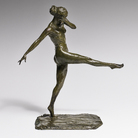 Dal 27 February 2026 al 28 June 2026
Milano | GAM | Galleria d’Arte Moderna
Dal 27 February 2026 al 28 June 2026
Milano | GAM | Galleria d’Arte Moderna
Paul Troubetzkoy. Lo Scultore della Belle Époque
-
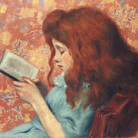 Dal 27 February 2026 al 28 June 2026
Rovigo | Palazzo Roverella
Dal 27 February 2026 al 28 June 2026
Rovigo | Palazzo Roverella
ZANDOMENEGHI E DEGAS. Impressionismo tra Firenze e Parigi
-
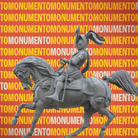 Dal 26 February 2026 al 7 September 2026
Torino | Palazzo Madama
Dal 26 February 2026 al 7 September 2026
Torino | Palazzo Madama
MonumenTO. Torino capitale. La forma della memoria
-
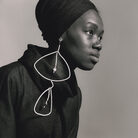 Dal 14 December 2025 al 25 July 2026
New York | MoMA | The Museum of Modern Art
Dal 14 December 2025 al 25 July 2026
New York | MoMA | The Museum of Modern Art
Ideas of Africa: Portraiture and Political Imagination
-
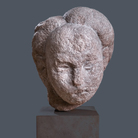 Dal 20 February 2026 al 19 July 2026
Roma | Mercati di Traiano Museo dei Fori Imperiali
Dal 20 February 2026 al 19 July 2026
Roma | Mercati di Traiano Museo dei Fori Imperiali
Constantin Brâncuși. Le origini dell’Infinito
-
 Dal 18 February 2026 al 19 July 2026
Padova | Centro Culturale Altinate | San Gaetano
Dal 18 February 2026 al 19 July 2026
Padova | Centro Culturale Altinate | San Gaetano
M.C. ESCHER. Tutti i capolavori
